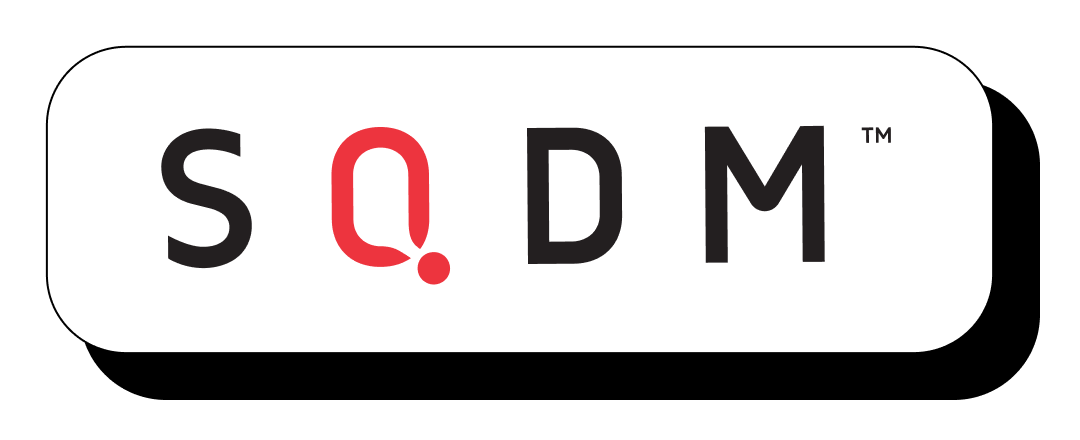Artificial Intelligence (AI) has transformed the business landscape in recent years, with generative AI leading this revolution. Major companies worldwide are leveraging the power of generative AI to innovate, optimize processes, and deliver personalized experiences to their customers.
From content creation to product design and the automation of complex tasks, generative AI is redefining what is possible in the corporate realm. In this blog, we will explore how leading companies are using this advanced technology to stay competitive and thrive in an ever-evolving market. Join us as we delve into the most impactful applications of generative AI and discover how it is shaping the future of business.
What is Generative AI?
Generative Artificial Intelligence (Generative AI) is a subfield of Artificial Intelligence focused on developing models capable of creating new and original content. Unlike other forms of AI that are limited to recognizing patterns and making decisions based on existing data, generative AI has the capability to produce text, images, music, code, and other types of content from scratch using advanced algorithms. This technology employs deep neural networks, such as Generative Adversarial Networks (GANs) and transformers, to learn from large datasets and generate outputs that are virtually indistinguishable from those created by humans.
Generative Adversarial Networks (GANs) consist of two neural networks that compete against each other: a generator network that creates new content and a discriminator network that evaluates the authenticity of the generated content. This competitive process drives the generator to continually improve, producing increasingly realistic and detailed results.
On the other hand, transformer models, such as OpenAI’s popular GPT (Generative Pre-trained Transformer), use attention mechanisms that allow the AI to understand context and relationships within large volumes of text, resulting in coherent and contextually relevant content generation.
This technology not only enhances efficiency and productivity but also opens new creative opportunities that were previously unattainable. In the realm of medicine for example, generative AI can assist in designing new drugs by simulating molecular interactions, while in education, it can produce personalized learning materials for each student. It can also enable the creation of multimedia content at unprecedented speed and quality.
Generative AI is truly revolutionizing industries by pushing the boundaries of creativity and innovation. As companies continue to adopt and integrate this technology, the potential for generative AI to reshape the future of business and everyday life becomes increasingly evident.
The Most Popular Use Cases for Generative AI
Video Creation
In the realm of video, generative AI can synthesize realistic scenes, create animations from the ground up, and even improve the quality of existing content. AI-based tools can generate special effects, modify scenes and perform complex edits that previously required hours of manual work. In addition, it can be used to create custom videos, tailored to users’ tastes and preferences, thus enhancing the viewer’s experience.
Image Manipulation
Image manipulation has reached unforeseen levels with generative AI. With the use of algorithms such as GAN, it is possible to generate high-quality images that look completely real, from landscapes and portraits to objects and textures. These tools can retouch photos, change artistic styles, and create completely new content from existing data. AI can also restore old photos, remove imperfections, and adjust colors and contrasts automatically.
AI-Driven Chatbots
● Thanks to generative AI, chatbots can better understand users’ questions and requests, providing more accurate and relevant answers. They can have longer and more complex conversations, remembering previous contexts and adjusting their responses accordingly.
● Generative chatbots can adapt to users’ individual preferences and behaviors. By analyzing data and interaction patterns, they provide personalized responses through AI message generator functionalities and tailored recommendations that meet each user’s specific needs.
● This application of artificial intelligence allows chatbots to handle a greater number of queries simultaneously, without sacrificing the quality of responses. This is especially useful for companies that need to serve large volumes of customers efficiently. The ability to automate repetitive tasks and provide 24/7 support helps free up human resources for more complex and strategic tasks.
● With the ability to generate original and creative content, chatbots can offer innovative services, such as writing emails, creating personalized content, and generating recommendations based on individual preferences.
Software and Coding
Generative artificial intelligence is revolutionizing software and code creation by automating repetitive tasks and improving code quality. Several tools offer intelligent suggestions and complete lines of code in real time, increasing productivity and allowing developers to focus on more complex tasks. Additionally, AI can generate custom code and optimize software performance, accelerating development and fostering innovation in the software industry.
By automating these repetitive tasks, AI improves code quality and provides real-time code generators for suggestions and even completes lines of code, further boosting productivity. This allows developers to concentrate on more intricate tasks. Overall, AI is transforming the landscape by generating custom code, optimizing performance, and driving innovation in the software industry.
Generative Artificial Intelligence Tools for Business
Boomi AI
Boomi AI is an advanced tool integrated into the Boomi platform to transform data management and enterprise integration. Boomi, known for its ability to connect applications, data and people, has empowered its platform with AI capabilities to improve efficiency and decision-making.
The Key Features of Boomi AI
● Intelligent Automation: Boomi AI can automate complex data integration and management processes, significantly reducing the manual time and effort required.
● Predictive Analytics: Machine learning algorithms analyze patterns and predict trends, helping companies anticipate future needs and opportunities.
● Process Optimization: This tool identifies and suggests improvements to existing processes, optimizing workflow and improving overall productivity.
● Data Quality: Boomi AI can identify and correct errors in data, ensuring that business decisions are based on accurate and reliable information.
● Simplified Integration: Boomi AI facilitates the integration of various applications and systems, enabling seamless and efficient connectivity between different IT environments.
Salesforce Einstein
Salesforce AI, also known as Salesforce Einstein, is an advanced artificial intelligence platform integrated into the Salesforce ecosystem. This tool is designed to improve business efficiency and effectiveness through automation, predictive analytics, and real-time personalization. Salesforce AI tools, like Einstein, makes artificial intelligence accessible and usable in all areas of business, from sales and customer service to marketing and commerce.
The Key Features of Salesforce Einstein
● Predictive Analytics: Einstein employs machine learning algorithms to predict future behaviors, enabling companies to anticipate customer needs and make proactive decisions.
● Process Automation: With Einstein, repetitive tasks can be automated, freeing up valuable time for employees to focus on strategic activities.
● Real-Time Personalization: Salesforce Einstein enables companies to deliver personalized customer experiences in real time, improving customer satisfaction and loyalty.
● Image Recognition: Einstein Vision enables companies to incorporate image recognition into their applications, facilitating tasks such as product identification and image analysis.
● Natural Language Processing (NLP): Einstein is equipped with natural language processing capabilities, enabling companies to analyze and understand the sentiment and intent behind customer interactions.
● Data Analytics and Reporting: With Einstein Analytics, companies can analyze large volumes of data and generate detailed reports that facilitate informed decision-making.
We recommend: Customer Data Management & the Role of Salesforce Partners
Oracle GenAI
Oracle GenAI is an advanced tool developed by Oracle, created to change the way companies interact with data and create innovative solutions.
The Key Features of Oracle GenAI
● Content Generation: GenAI enables companies to create customized content on a large scale, from text and reports to images and videos. This facilitates the creation of relevant and engaging material for marketing, communication and product development.
● Process Automation: The tool can automate repetitive and complex tasks, such as reporting and data analysis, freeing up time for employees to focus on strategic tasks.
● Predictive and Trend Analysis: Uses advanced algorithms to predict future trends and behaviors based on large volumes of data. This allows companies to anticipate market needs and make more informed decisions.
● Operations Optimization: GenAI helps identify inefficiencies and areas for improvement in business processes, providing recommendations to optimize operations and reduce costs.
● Natural User Interaction: It facilitates the creation of conversational interfaces and chatbots that understand and respond to user queries more naturally and effectively.
● Personalization of Experiences: GenAI enables the personalization of customer experiences by generating recommendations and offers based on individual behavior and preferences.
If you are looking to implement generative AI tools, DigiTech has a complete team of experts ready to help companies that seek to be at the forefront of technology.
Under the Nearshoring IT model, our talent works hand in hand with your teams to optimize implementation times and ensure success from start to finish.


